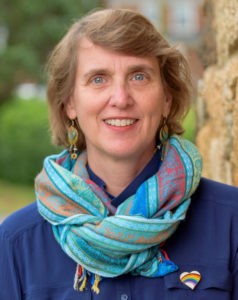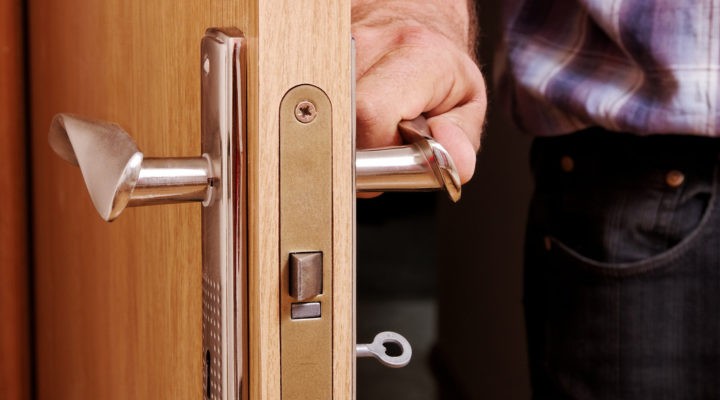Before I get into this piece any further, let me admit that decency is a pretty low bar for people of faith. I find that in most churches (I cannot speak for synagogues or temples or mosques), the bar is generally set at “I’m not bothering anybody,” fairly uninspiring for people who claim to be the children of the God of all the universe.
Still, as a base level, let’s use “decency.” What should happen when a decent man of faith is accused of sexual impropriety, abuse or rape by someone in their community?

Martha Dixon Kearse
First, let’s assume the man is genuinely innocent of actual sexual abuse (all of the above are abuse, even inappropriateness). Let’s look at the levels of response of this decent man:
- A decent man submits to a complete investigation immediately. He provides records and witnesses to show that he never was alone with the person accusing him, or, if he was alone, the door was open, there was a window in the door, other people were around.
- If this completely innocent man does not have those records, or was, in fact, alone with this person in ways that had no protection and this is a first offense (that is, this person has never, ever, ever before been accused of a sexual impropriety), this decent man would admit to having had poor practices and follow the policies set down in his responsible community for the next steps (at the very least, suspension, counseling, training on the safety of the vulnerable people in his care).
That is the behavior of a responsible, truly innocent person. If he has been caring for the safety of his people, he has not put himself in the position where some level of sexual abuse could happen. He helped his community create good policies around the safety of everyone, especially children and teens, and he has followed those policies himself.
In 2021, if the clergy in a faith community are not doing this leadership act, requiring their community to work with them to create safe communities, they are actively setting up their most vulnerable people and themselves for harm.
“If he has been caring for the safety of his people, he has not put himself in the position where some level of sexual abuse could happen.”
At the next level, let’s say he is guilty of some impropriety, but not at the level at which he is accused. Say he said things that were inappropriate, commenting on women’s clothing or weight, how they look in their clothing, whether he would date or marry them. He was “inappropriate,” but he did not commit rape. Again, assuming what we’re talking about is basically a decent human being (with some pretty significant issues at this point), that person resigns. Immediately. That person admits to the improprieties, apologizes and resigns. Immediately and without any question.
Hopefully, even this person has had some practices that mean there are witnesses who can speak to the fact that he has not committed rape — by which I mean that he never was in a position where he could rape or molest someone — and can provide documents that show his adherence to the good policies of his community.
Those are the options for a decent person. Anything else — whether the person was alone with his accuser or whether he did not help his community create good policies or whether he did not abide by the good policies of his community — and that person is fired. Immediately.
The default setting is the one that most adheres to observable truth: People do not just show up one day with the story of being sexually abused to entertain themselves or to make money. That is not to say that no one is ever falsely accused — there are some reasons why a person would be falsely accused, such as racism or jealousy or revenge. But a decent human being in a position of leadership in a faith community, which is always filled with vulnerable people, such a person with access to the kind of information we have available to us in 2021, who does not create and abide by policies that protect himself as well as the vulnerable people in the community is guilty of leaving open a place for harm to enter the community, possibly even directed at him.
“People do not just show up one day with the story of being sexually abused to entertain themselves or to make money.”
When I had a summer camp program for children in my former church, I used to hire college students to help me. They were useless from 8 a.m. to noon, but after lunch, when my energy was always down, they were amazingly ready to go play soccer or take kids to the pool or take the car and run to the drug store to get whatever was the urgent need of the moment. Part of their training was the moment when I sat them down and said this: “Do not ever put yourself in a position where you could harm children or where they could harm you.”
I taught them not to go into bathrooms with children. When we traveled away overnight, I taught them not to go into the rooms of the children and not to let the children into their rooms. I taught them never to be alone with any child. I taught them never to help a child dress or change clothes. I taught them about appropriate touching and how to discern what that looks like. Mostly, I taught them not to be naive about the harm that could happen to children or to them.
And then, I watched to make sure all those policies were followed. I did not, when I first began the program, send out a notice to the parents about these policies — a fact that I regretted and still regret. Once I realized my error, I began to do so, printing in camp materials and sending notice before overnight camps about our two-adult policy and the other policies we would use to keep their children safe.
I also talked to the children in the program on the first day of camp. I still do so. I say to them: “We do not play games in bathrooms. We do not play tricks on each other or steal towels or clothing. We do not go into bathrooms when adults are in there. We do not ride alone anywhere with an adult. You should always be able to see other children and two adults, except if you are alone, by yourself, in the bathroom.”
“Kids don’t want to be hurt. Decent adults don’t want to hurt them.”
I do not play around with these safety measures, and I let them see on my face and hear in my voice that I am not playing around. I say all this in front of the college-aged leaders and the other adults to reinforce our safety practices. And then I enforce those policies. And, you know, kids don’t want to be hurt. Decent adults don’t want to hurt them.
Calling everyone to good practices is not accusing the adults of wanting to hurt them. It’s actually a really good way to keep people who want to hurt children out of your program to begin with. There is good evidence to suggest that requiring a year of attendance in a faith community before having access to children and having policies like a two-adult rule, which are clearly stated and enforced, are highly effective at protecting both the children and the adults who care for them.
Here is a good basic resource for people of the Christian faith from GRACE (Godly Response to Abuse in the Christian Environment): “Is Your Church Trip Safe to Send Your Child On?”
If your community of faith does not have policies, they should. Your clergy should be leading you into their creation. If you are allowing your children, your vulnerable people, to go into situations where they could be abused, you should not be doing that.
The abuse is not the fault of the victim — that is not what I am saying — but there are good policies that go a very long way toward discouraging predators and keeping them out of your systems. The very best outcome for decent people is to make sure we have done every single thing in our power to create spaces where vulnerable people, like children and teens, like an adult who shows up in the office of a clergy member by himself or herself for counseling, like an elderly person who is easily convinced to part with their money or their safety, where all of those people are as safe as we can make them.
“But what about forgiveness?” you ask. Absolutely. God forgives. But, despite their alliteration, “forgive” and “forget” are not the same thing.
America is filled with churches, synagogues, temples and mosques. If someone has been an abuser inside our system, but they have truly repented, good for them. There are tons of other places where they can go to worship and be welcomed by a community that does not include the people they hurt. We are the protectors of the most vulnerable — that’s our setting. Someone who has been a predator in the past has lost the privilege of being with us.
“Someone who has been a predator in the past has lost the privilege of being with us.”
In a truly responsible world, that predator would struggle to find a place that would be willing to let them in — hopefully, that person would not find any place where they would be given any access at all to vulnerable people. And if that person is a clergy person, then that person is done being clergy. That person needs to be something else. Forever. That kind of broken trust does not get a second chance. That person who was guilty of sexual abuse but has repented needs to become a kind and moral waiter, a deeply faithful barista, a hard-working insurance adjuster or bus driver or anything where vulnerable people cannot be harmed by their predation.
Our default setting should be believing accusers. How we got to the place where it is the poor, pitiful man who gets our sympathy I can only attribute to the depth of the misogyny in our culture.
If a person is a decent man, he has been at work in creating safe policies. He has not been part of a narrative that says, “It can’t happen here.”
If a person is a decent man, he would take accusations seriously, even if they were aimed at him, and he would have been careful to ensure that he had not put himself in the position where he could harm a vulnerable person.
And if a person is a decent man, but he has been blind to the need for such behaviors, so that someone accuses him and he has been in positions where he could have done that of which he has been accused, then that is a sadness that could have been prevented. Losing his job might be a consequence of that failure.
But the harm of job loss is nothing like the harm of a woman or a man or a child or an elderly person who has been harmed and is not believed. Who lives with the trauma of sexual abuse, of broken innocence, of physical, mental, emotional and spiritual damage every single day of their lives.
In case anyone is wondering, prioritizing the protection of our most vulnerable people against having to live with those consequences is what constitutes decency. Which is still a pretty low bar.
Martha Dixon Kearse serves as pastor of Peakland Baptist Church in Lynchburg, Va. She earned the master of divinity degree and doctor of ministry degree from Gardner-Webb University.
Related articles:
10 ways every church ought to combat sexual violence and domestic abuse | Opinion by Kyndall Rae Rothaus
On clergy sexual abuse, CBF-BWIM safe church resources help response, education, prevention


